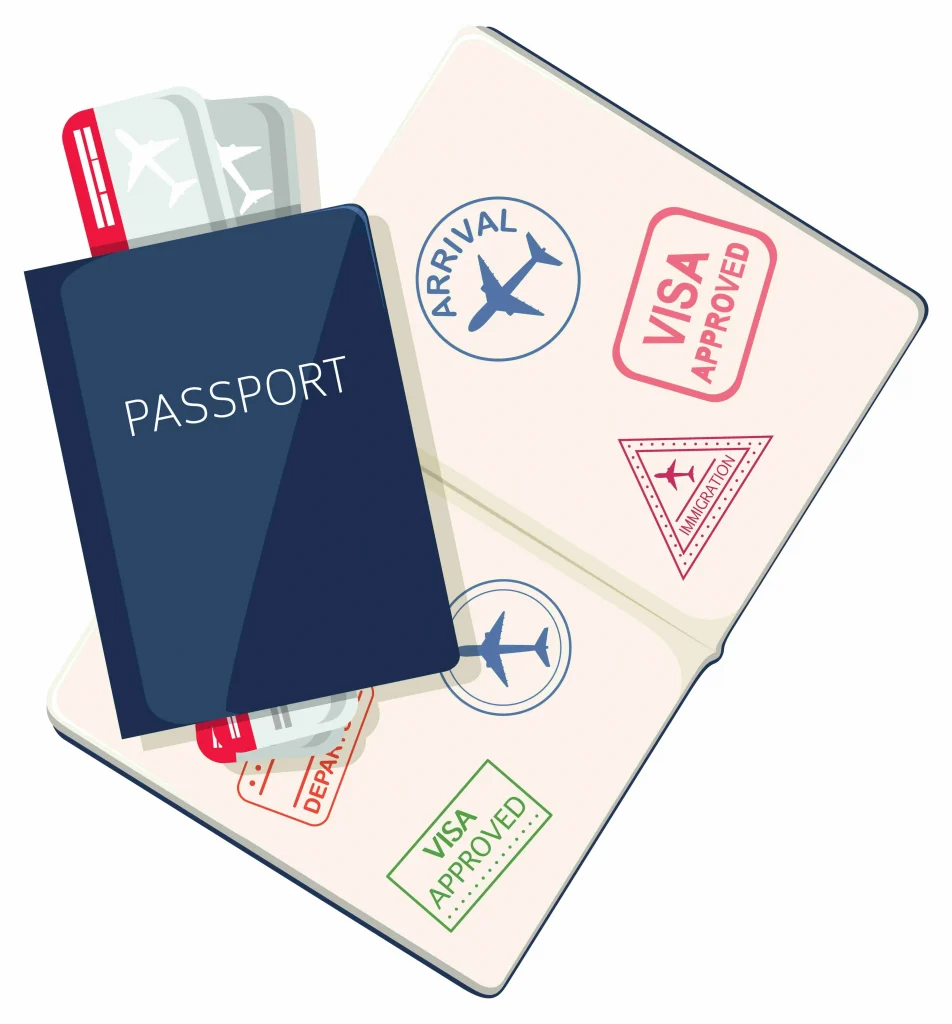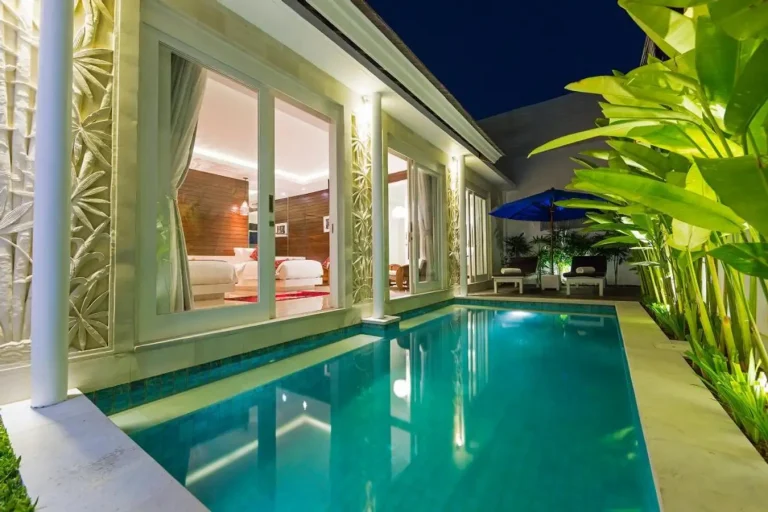Starting a business in Indonesia: Company set-ups & Visa Tips
Starting a business in Indonesia as a foreigner can be intimidating. Some sectors are restricted from foreign ownership, others require specific licences and the overall visa situation for foreigners owning a company in Indonesia takes some time to get used to.
Here is a guide of all the things you should know and might have to do if you want to start a business in Indonesia.
Why should you start a business in Indonesia as a foreigner in the first place?
You might be wondering if you even need to start a business as a foreigner in Indonesia in the first place. Let’s see the strong arguments and perks explaining why many foreigners decide to jump into the Indonesian market.
Indonesia is a huge developing market with a pro business attitude
Indonesia is a growing country with a promising future.
Since the year 2000, the country’s GDP has been growing at an average rate of nearly 5% each year, making a significant part of its 270 million inhabitants fall into an ever expanding middle class, especially in the biggest cities.
The Indonesian government made the economic development of the archipelago one of its top priorities, easing the red tapes that the country was previously famous for, opening up foreign investments to more sectors and keeping employment regulations and taxes to a reasonable amount.
In recent years, many foreign companies have realised that Indonesia could be one of the next (not so sleepy anymore) Asian giants and have relocated, invested or started new businesses in the archipelago.
If you want to start your business journey in Indonesia on the right track, Establish your company online now
Bali and other Indonesian islands are world class tourist destinations
Aside from the local Indonesian market, Indonesia is also known to be one of the best destinations for tourism in Asia, and islands such as Bali are widely regarded as destinations that people fly to from all over the world.
With such a huge playground, it’s no surprise that many of the business opportunities also lie on the numerous foreign tourists and residents that flock to Indonesia each year.
Hotels, restaurants, sports or even retail, many foreign-owned companies in Bali and the rest of Indonesia mainly target tourists, digital nomads and expats that visit or live in the archipelago.

Most long term expats in Bali have started a business to sustain their life
Making a living in Indonesia as a foreigner isn’t always easy.
Job opportunities that are open to foreigners in Indonesia are not common, and when they do exist, the salaries aren’t as attractive as most western countries.
When you meet foreigners that have been living in Bali for 5, 10, 20 or even 30 years, you quickly realise that almost none of them are employed: they are almost always business owners.
Many foreigners, especially the ones looking for a different life in areas such as Bali, naturally decide to start a business in Indonesia in order to simply support their lifestyle.
An Indonesian company can hold real estate property titles for you
Owning real estate in Indonesia as a foreigner is heavily limited, not to say forbidden in most cases.
However, companies (including foreign-owned ones) can hold property titles. It is therefore quite common for foreigners to set up an Indonesian company for the sole purpose of owning real estate or starting a hospitality business.
Starting a business in Indonesia can help you get residency visas
Long term resident visas, called KITAS, aren’t easy to get in Indonesia, and can be expensive.
Owning a company is one of the methods to get a resident visa relatively easily.
The types of companies a foreigner can set up in Indonesia to start a business
Indonesia doesn’t allow foreigners to open any company structure that exists within Indonesian law.
If you intend to run a business in Indonesia as a foreigner, meaning earn an income from Indonesia, there are actually only 3 company types that will allow you to do that.
A PT-PMA: the only limited liability company that can be 100% foreign owned

The PT-PMA is the only Indonesian company structure that allows foreigners as official shareholders, and lets them be up to the full owner (100%) of the company.
A PT-PMA needs a minimum of 2 investors, either 2 foreigners or 1 foreigner and 1 Indonesian citizen.
Setting up a PT-PMA company comes with several pros and cons that one should carefully consider depending on its objectives.
Main pros of setting up a PT-PMA company as a foreigner
- If you are in an eligible sector, you can own up to 100% of the company, even as a foreigner
- Limited liability: your assets and the company’s assets are separated
- Setting up a PT-PMA is quite straightforward
- A PT-PMA can sponsor an investor KITAS for its shareholder that is also the director of the company, without the need for a work permit
- A PT-PMA can sponsor other visas (working KITAS, business, investor KITAS…)
- A PT-PMA can be used to hold and manage real estate
Mains cons of setting up a PT-PMA company as a foreigner
- A minimum paid up capital of 10 billions IDR is required, with 25% declared paid to start the set up process
- Not all industries let a PT-PMA operate with 100% foreign ownership: you might need to partner with a local firm
- The number of KITAS you can sponsor depends on your paid up capital
- A PT-PMA can only operate in one industry at a time (one main purpose)
A local PT: a limited liability company owned by Indonesian citizens that can be ran by foreigners
A local PT is simply the main limited liability company that Indonesian citizens use. It is generally speaking more flexible than PT-PMA but there is one big caveat when you are a foreigner: you can’t own a local PT, or own any share of it.
Many foreigners still use local PT as their main business vehicle, they simply do not fully own it on the paper, they use Indonesian nominees that act as the lawful owner.
Main pros of setting up a local PT company as a foreigner
- The minimum capital is only 50 millions IDR instead of 10 billions IDR of the PT-PMA
- Limited liability: your assets and the company’s assets are separated
- A Local PT can operate in any industry, even the ones limited or closed to foreign investors
- A Local PT can still hire foreigners if it has enough capital, they just can’t be shareholders
- You can have up to 3 main activities under one local PT
- You can hold and manage real estate with a local PT
Main cons of setting up a local PT company as a foreigner
- You will need 2 Indonesian citizens to be your nominees (either professional nominees or people you are related to)
- You will never be the full owner of your company
- You have to use a good legal company to help you draft your nominee contract to make it safe
- You still need a minimum paid-up capital of 500 millions IDR to sponsor a Working KITAS
- No Investor KITAS can be sponsored by a local PT as it doesn’t allow foreign investment
Setting up a UD in your Indonesian spouse name: a small scale sole proprietorship to start a business in Indonesia if you are married to an Indonesian citizen

If you are married to an Indonesian citizen, you have a third option that could fit a small, less formal business.
The UD is the equivalent of sole proprietorship in Indonesia, and is of course only allowed for Indonesian citizens. But the moment a foreigner marries an Indonesian citizen, they become one unit in many regards of the law (taxes, social security, family books…).
As a foreigner on a spouse KITAS or KITAP, you are tolerated to work informally in your Indonesian husband / wife small hustle to provide for your household, as long as it is a “small scale” business.
Officially, you are not the owner of anything, your Indonesian spouse is. But in practice, this could allow you to run a small business as a foreigner in Indonesia quite simply.
Pros of setting up a UD in your spouse name for foreigners married to Indonesians
- You can work informally in your wife / husband small business
- You don’t need a work permit if you have a spouse KITAS / KITAP
- It’s very cheap to set up compared to most “regular” limited liability companies
- You can run businesses that are forbidden to foreign investors since the business is in your spouse name
- You only need your spouse, not 2 investors like most companies
- A UD is very informal: you don’t need to report often to the administration or follow complex accounting procedures
Cons of setting up a UD in your spouse name for foreigners married to Indonesians
- The UD is sole proprietorship, not limited liability: your household assets and the UD assets are the same
- You are only tolerated to work informally: all the documents and business officially belong to your Indonesian spouse
- Your business is at risk in case of the death of your spouse or divorce
- A UD is only tolerated for small businesses / hustles. The moment you make large revenue, own a lot of assets or start to hire you’ll need to set up a PT.
- The UD cannot sponsor any KITAS other than the spouse of the owner
Which types of Indonesian businesses can be 100% owned by foreigners with a PT-PMA?

Setting up a PT-PMA isn’t always enough to own 100% of your company as a foreigner.
The ministry of investment in Indonesia, called the BKPM, has a list of sectors where foreign investment is encouraged and open to 100% foreign ownership, limited through the use of joint ventures / partnerships with local companies, or simply strictly forbidden to any kind of foreign investment.
The types of companies that can be 100% foreign-owned with a PT-PMA
Indonesia usually allows 100% foreign-owned companies when thay have the following characteristics:
- They require large investments and/or are labour intensive
- They are strategic for the country and / or in line with current investment plans
- They bring in new technology, innovation and know-how
- They are primarily exporting to foreign markets
In some cases, the foreign investors can not only be granted a 100% ownership on their company on top of the usual trading licence, but also significant incentives such as tax cuts if their company is in a sector that is deemed strategic for the country.
The types of activities where foreign ownership is possible, but restricted to less than 100%
Some industries are open to foreign owned companies, under the condition that they partner with a local company.
The maximum number of shares the foreign owned-company can have compared to its local partner varies depending on the industry.
In some cases, a foreign owned company can own 95% of the shares in the business, in some other cases, the maximum is set so that the foreign investors are always in minority compared to the local company, so below 50%.
Such restricted but not forbidden foreign owned companies have usually the following characteristics :
- They are not very strategic for the development of the country
- The investment is quite low (below 10 billion IDR)
- They are not very labour intensive
- The business doesn’t require an advance technology, know-how or research
- They use a cultural heritage of Indonesia
The types of companies where foreign investment is strictly prohibited
Until quite recently, there were still a lot of activities that were restricted to foreign investment, but things have changed for the better and many of these previously forbidden industries are now only restricted when they haven’t been fully open.
The activities that remain prohibited for foreign owned companies are actually forbidden to any kind of investment, including local ones. They include the following:
- Production of illegal narcotics
- Gambling activities
- Fishing endangered species
- Collecting corals for manufacturing goods
- Production of chemical weapons
- Production of chemical that could damage ozone
In short, all the businesses that remain on this list are usually what is against the law for anybody, or only allowed by the central government and the army.
What visas are usually required for company owners in Indonesia?

Now that we’ve explained the main requirements to create each type of company in Indonesia, let’s explore the types of visas that could be attached to foreigners starting a business in Indonesia.
You don’t need a visa to own an Indonesian company if you are a shareholder that doesn’t live in Indonesia
In some cases, you could be the main owner of a PT-PMA company and never be in Indonesia for different reasons. This is for example often the case with companies that are created for the sole purpose of owning real estate.
In this case, you will not necessarily need a visa if you don’t live in Indonesia and don’t plan on working there either. Your passport is enough to set up your company and be a shareholder.
You can get an investor visa if you own a PT-PMA and want to stay in Indonesia
If you have your own PT-PMA or own at least 10% of a PT-PMA, you are eligible to have an investor KITAS that will allow you to stay 1, 2 and up to 5 years in Indonesia.
This KITAS doesn’t allow you to work in Indonesia however, unless you are the director of the company that sponsors you.
You will need a working visa if you are not the director of a PT-PMA and intend to work in Indonesia
If you are a shareholder in a company that you are working in, but not the director, then you should get a working KITAS.
Only working KITAS allow foreigners to work for PT-PMA if they are not the director of the company, regardless of the number of shares they might own in this company.
This is also the visa to pick if you are investing in one company but working for another company.
In all cases, a working KITAS MUST come with a working permit, which is quite a process to get through.
Foreigners married to Indonesian can use their spouse as their visa sponsor
As we previously mentioned, if you are married to an Indonesian citizen, you are eligible to a spouse KITAS / KITAP that allows you to work in various ways in Indonesia:
- Informally in your spouse small business (sole proprietorship under his/her name)
- Formally for a local PT or a PT-PMA by only applying to a work permit and keeping your spouse as your KITAS sponsor
- Formally with a PT-PMA that you own and sponsors you if you don’t want your spouse to sponsor you
So if you are a foreigner starting a business in Indonesia while being married to an Indonesian citizen, you are in luck since you can literally pick who can sponsor you (spouse, company that you invest in, company that hires you…).
In most cases, people still pick their spouse as their sponsor and stay on a spouse KITAS / KITAP regardless as it does tend to be more straightforward, more practical for daily administrative tasks and more economical than other options.
Aside from setting up a company and a visa, what does a foreigner need to start a business in Indonesia?

Having a company set up and a visa to start living and running your business in Indonesia is almost the end of the road, but not exactly. Here is what you’ll likely need to really start your business and run it smoothly.
Business permits: most industries require you to get some sort of licence to operate legally
Setting up a company is rarely enough to really start trading in Indonesia. Most industries require some form of licence.
Here are a few examples of licences you might require for your business:
- Import & Export licences
- Restaurant licence
- Alcohol licence (restaurants, bars…)
- Pondok Wisata: the licence for touristic accomodations
- BPOM Licence for food production
- PIRT Licence for home food production
- Environmental permit
- … and more!
A Legal address or a virtual office for your business
Most companies set ups in Indonesia require you to have a legal address that is an office / professional building. This means that in most cases, you can’t use your own home address (except in the case of the UD).
If you don’t have an official office or building, you can use a virtual office to domicile your company in a legal official address for a small yearly fee.
Work permits: a mandatory step for most foreigners to legally start working in some companies in Indonesia
Depending on your visa and your type of company, you might or might not need a work permit to start working.
Likewise, if your business requires hiring foreigners to work in Indonesia, you’ll need visas and work permits for each and every one of them, which can be tedious and time consuming.
Tax and accounting set up: the moment you start operating an Indonesian company, you also start reporting to the authorities and collecting taxes
Once your limited liability company in Indonesia is set up, you need to meet various legal requirements that you should prepare in advance. This includes:
- Having an NPWP for your company (tax ID)
- Perform monthly double entry accounting
- Collect taxes for the Pajak (tax department)
- Report to the ministry of investment (BKPM)
Likewise, the requirements for your company also stands for your own case if you are not yet properly registered in Indonesia yet, or if some of your staff members aren’t. You might need to get registered for a NPWP, get your EFIN and start declaring your income to the Indonesian authorities as well.
Create / participate to social security schemes (BPJS) for your employees and yourself
Indonesia has a mandatory social security system called the BPJS that relies on companies to pay a big part of the healthcare and the retirement benefits of their employees.
So, a successful business in Indonesia that starts hiring locals and foreigners alike will have to meet these requirements and finance the amounts that are due to the different institutions for their employees’ benefits.
Conclusion
Starting a business in Indonesia has a lot of advantages and isn’t as hard as it seems to be when you benefit from the proper legal advice and a good strategy to set it up.
Getting started with the right business structure is important as transitioning from one company type to another can be tricky and time consuming.
If you want to start your business journey in Indonesia on the right track, feel free to book a consultation with us, it is free!





